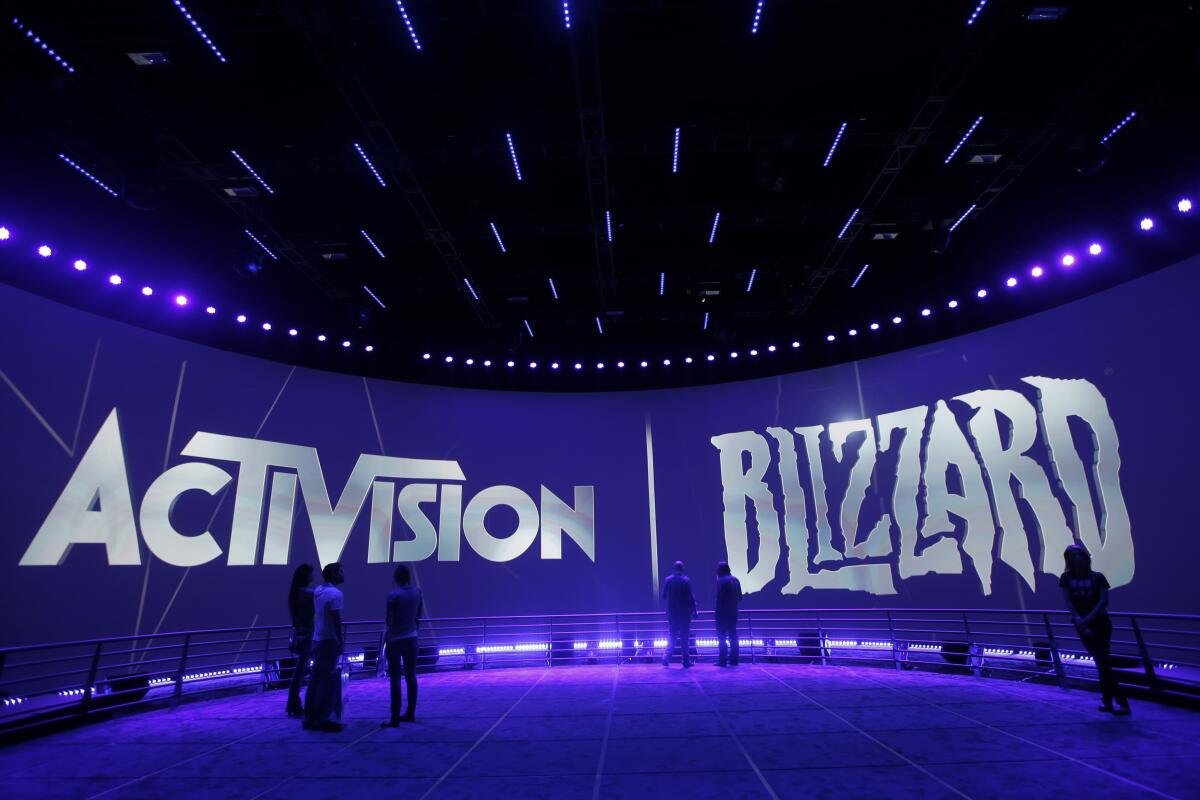Why companies canât quit Jack Welchâs much-hated employee-ranking system

Workers have plenty to fret about these days â layoffs, return to office mandates, annual evaluations. But thereâs another concern lurking, one thatâs rooted in the bygone era of Ronald Reagan and oversized blazers: stacked performance rankings.
Popularized by General Electric former Chief Executive Jack Welch in the 1980s, this evaluation process requires managers to grade staff on a bell curve and give low ratings to a certain share of them. Itâs relevant again after a manager at video game developer Blizzard Entertainment departed for refusing to give a low evaluation to an employee that he felt didnât deserve it in order to fill a quota. Blizzard, a unit of Activision Blizzard, says the process was designed to facilitate honest feedback and improved performance.
Trouble is, it also creates workplaces as toxic as a 1980s Superfund site. Stacked rankings can pit employees against one another, giving managers like the one at Blizzard the impossible task of telling hard-working, valuable employees that they simply arenât good enough.
There have been dozens of research papers on stacked rankings, also called forced rankings. Theyâve found that while the process can boost productivity in the short term, it chills collaboration and creates a dysfunctional, stressful, top-down work environment that could âcripple the company.â The ranks of blue-chip companies that have ditched the system include Ford Motor, Capital One Financial and Microsoft â which is now trying to acquire Activision Blizzard.
âManagers need to focus on building trust, not leading by fear,â said Victor Assad, a workplace consultant, adding that stacked rankings can also lead to additional legal costs for employers.
Nevertheless, the system persists, and is used by e-commerce giant Amazon.com, the nationâs second-biggest private employer. At Blizzard, known for games including âWorld of Warcraft,â managers were expected to give a poor âdevelopingâ designation to roughly 5% of employees on their teams, which would lower their bonus and could hamper them from advancing. Stacked-ranking systems can also require the lowest-ranked people on the team to be laid off, which Welch, who died in 2020, famously said was âthe right thing for themâ as theyâd likely get axed later on anyway.
Microsoft is headed for a battle with the Federal Trade Commission over whether the U.S. will block the its planned takeover of Activision Blizzard.
The catch is that itâs very possible for someone to be rated as a good performer, but ranked in the bottom 5% or 10% if their peers are exceptional. Likewise, a poor-performing employee could avoid the ax by working in a group of laggards. Thatâs according to Dick Grote, a now-retired management advisor who literally wrote the book on forced rankings in 2005 and has advised organizations including Citigroup, PepsiCoâs Frito-Lay division and Caterpillar.
âThe problem here is that Blizzard Entertainment and their performance management system mixes the two approaches,â Grote said by email. âTheyâre using absolute comparison terms to make a relative comparison judgement.â That approach is what led to the Blizzard manager leaving. In a Twitter thread detailing his departure, the manager called the quota system âtoxic.â The thread generated dozens of supportive responses, including one that called stacked ranking âboth immoral and ineffective.â
Grote disagrees, saying Blizzardâs approach was flawed but could be corrected. Plenty of top executives defend the practice. Ben Zweig, CEO of workforce intelligence firm Revelio Labs, said relative comparisons like forced rankings prevent the âvery common patternâ of giving high ratings to most every employee.
âData without variance is really not data at all,â he said. âThere are plenty of reasons why companies benefit from knowing who is doing well and who is not,â and those reasons go beyond targeted layoffs or other interventions. âCompanies can use this data to discover deeper truths about their workforce.â
But with job cuts rising and HR budgets getting trimmed, few companies have the time, money or inclination to seek those deeper truths. Which leaves us with a more superficial truth: Watch your back, because you might get stacked.
Employers are coming up with a whole new class of catchphrases to promote their flexible-work options, highlighting the challenge of establishing norms in an ever-shifting modern workplace.
More to Read
Inside the business of entertainment
The Wide Shot brings you news, analysis and insights on everything from streaming wars to production â and what it all means for the future.
You may occasionally receive promotional content from the Los Angeles Times.











